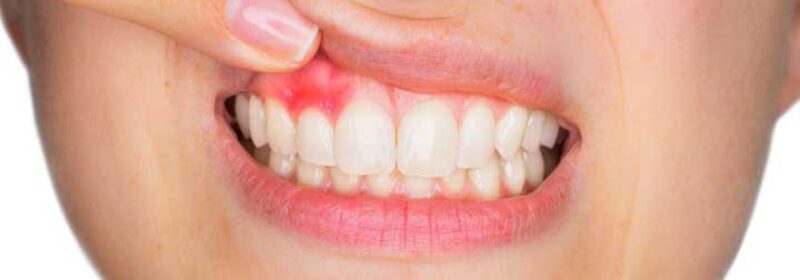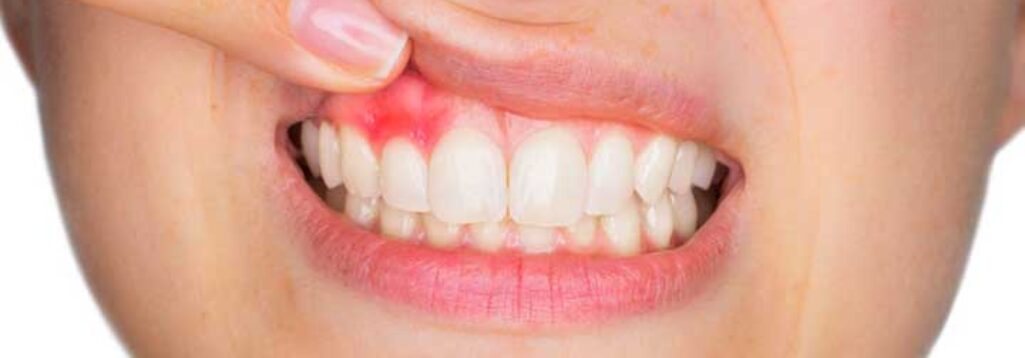
|

|

|

|

How Do Gum Diseases Affect Oral And Dental Health?
Gum tissues offer pronounced support to the teeth, help them stay in place and provide an anchor. The gum lining supports the teeth as they develop and align them appropriately, as well as provides essential functional and structural maintenance.
Gum diseases occur when the gum lining is infected.
The signs of a cavity in the tooth include swelling of the gum, inflammation, and discomfort. Gingivitis and periodontal diseases are the most frequent forms. The former is less severe and can be treated quickly, while periodontal diseases come in different types and they affect the tissues that offer support to the teeth.
When the support is gone, the dental health is harmed, and oral health declines. Gum diseases are common among adults and one of the most prevalent causes of tooth loss. Treatment of this disease is easier as the onset is gradual and if checked earlier then oral and dental health can be maintained with proper treatment.
Symptoms and decline of oral and dental health
Several symptoms and indications appear as the illness progresses, much like with any other dental condition. These are beneficial since they can assist you in receiving excellent therapy if the condition is early. It’s vital not to brush off symptoms of oral disease, as this may lead to more serious problems later. Seek expert advice from a dentist.
If a person goes to the dentist twice a year as is usually advised, these indications are simple for the dentist to recognize and address.
Gum diseases are typically characterized by red gums that are swollen, foul breath that does not go away, gums bleeding when brushed, tooth pain while chewing food, loose teeth, and receding gums. Gum tissues that are weak and unable to keep the teeth in place are the underlying cause of all of these symptoms. The health of the jawbone is also harmed by this gum disease.
Gum tissues may be weak if a person’s dental health is harmed. Tooth decay will result from the infection in the gums. Even the fundamental structure of the tooth can be damaged, and it can be destroyed. When the gum lining is worn down, it no longer has enough strength to help the teeth maintain their position. The loss of position of the teeth will occur as a consequence of the deterioration of gum tissues.
Gum disease has a wide range of negative impacts, the most significant of which is the erosion of dental health. Gum disease has a long-term effect on your teeth and general health. When there is tooth decay, it’s usually possible to remove the infected tooth and preserve oral health. But due to the very nature of the gum tissues, the infection can spread at a faster rate and many teeth can be affected. Many teeth will be lost due to gum diseases, and the infection will also spread to other parts of the mouth and the oral health gets impaired.
Gum disease can be prevented or treated. Gum disease may be attributed to a variety of reasons, including lifestyle habits and diet. Gum diseases are generally caused by an infection, which occurs as a result of plaque or tartar accumulation. When food is eaten, tiny particles of food collect in the gaps between teeth or between teeth and gums, where they are susceptible to bacterial infection. Sugar particles stay in the mouth speed up bacterial activity because this type of food attracts bacteria at a faster rate than normal meals.
Caring for teeth and treatment
As plaque formation is considered the main cause of gum diseases, steps must be taken activity to remove any formation of tartar on the teeth. Cleaning regularly and flossing the teeth will help to remove the plaque build-up. Lifestyle and habits that a person follows also affect gum diseases and thereby oral and dental health of a person. Sugary food and drinks should be reduced and so also habits like smoking. Smoking promotes bacterial plaque/tartar formation. When a person smokes the oxygen content is reduced to a great extent, if an infection happens healing is hindered due to lack of oxygen. This will promote the spread of gum diseases.
The goal of gum disease treatment is to eliminate tartar. It’s the tartar that causes gum problems, so dentists will clean your teeth and remove the tartar build-up. Tartar, as time passes, will harden as it becomes more advanced and difficult to clean with typical brushing. There will be pockets of germs developing along the gum line, and bacterial action has much multiplied the havoc done by bacteria.
Using specialised tools and techniques the hardened tartar is removed and the infection possibility is removed. During the dental examination, the dentists will inspect the damage using X-rays and examine the gum lining around the teeth to see if it has receded as a result of infection. It is based on these assessments and discussions with the patient that their treatment choices are finalised.
The rate of plaque development is increased due to genetics, medical condition, or nutrition inadequacy; as a result, regular dental checkups are required. Dentists can assist patients in making the best decisions and lowering infection rates. They may suggest medications to help you maintain excellent oral and dental health. Gum tissues can be strengthened by this, allowing them to continue providing strong support to your teeth. Gum diseases must be handled, since there are studies demonstrating that if not treated, various other illnesses including heart disease, diabetes, and strokes can occur.
Conclusion
It’s important to maintain a healthy mouth and prevent gum disease. Gum diseases can lead to serious health problems, including heart disease, diabetes or other conditions that affect the body as a whole. That is why it is imperative for those who have been diagnosed with periodontal disease to seek treatment from their dentist immediately in order to avoid complications down the line.
The good news? Dental treatments are affordable and accessible.
If you live near our office, we would be more than happy to help assess your oral health needs during an exam appointment. We hope this article has helped educate on how important prevention of gum diseases really is.






